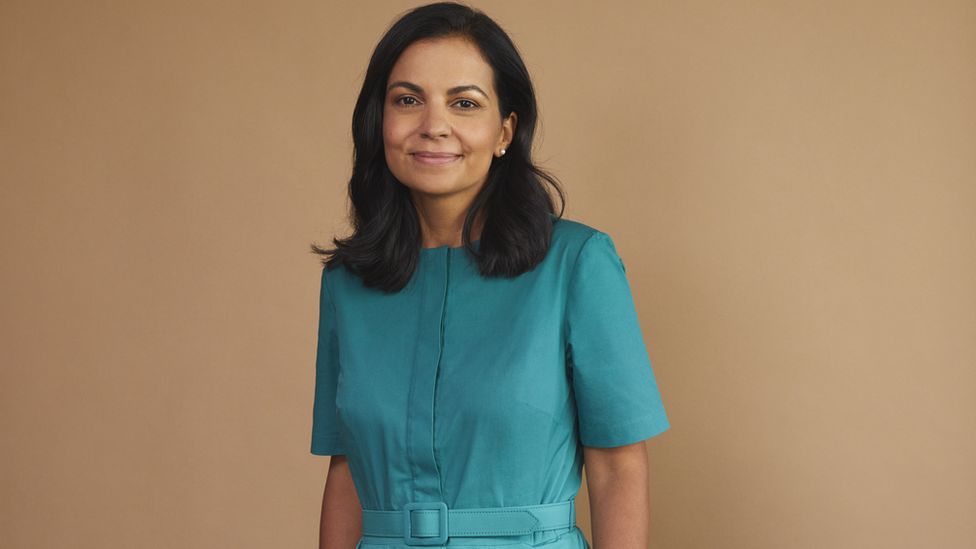Bumble boss: What women in tech can learn from me
- Published

Not many chief executives in tech are the daughter of a mechanic and a cleaner.
But Lidiane Jones, the boss of the online dating app, Bumble, says that is not what really marks her out: it is the fact she is not a man.
"It's still not an equitable journey for women today", she tells me of her path from her modest upbringing in São Paulo, in Brazil, to the boardroom.
If anyone wants to follow in her footsteps, she says, they need to turn the obstacles in business and tech that women continue to face to their advantage.
"My biggest advice is use this resilience that we have to build, especially as women, because opportunities are harder," she says.
"It's not necessarily an easy or linear journey. I've had to really be resourceful."
'Only woman'
Ms Jones brings more than 20 years of technical expertise in software engineering and product management to the role.
But despite having already been vice-president at Sonos and chief executive of Slack, she says the path to success for women in the technology sector is often riddled with hurdles and setbacks - not least the lack of representation.
"I definitely have been in many situations in recent years where I was the only woman in the room," Ms Jones says.
"But I'm really using this as a platform to ensure that I'm not the only woman in the room anymore."
Ms Jones cites the support of a network of other female leaders, including Bumble founder Whitney Wolfe Herd, as a source of inspiration and encouragement.
"The number of CEO women that are out there that have reached out, that have welcomed me into their small but mighty group, has been phenomenal," she says.
Encouraging women to back themselves, Ms Jones says: "Don't self-doubt.
"Don't waste any energy on that - just believe in yourself and take a leap."
Intense competition
Bumble styles itself as a female-friendly app - it is the woman who has to "make the first move" before two users can connect.
It is attempting to take that further with a feature that allows female users to set a question to which their matches can respond.
The big question for Bumble though is whether this tinkering can turn its fortunes around.
Shares in the dating app have fallen by two-thirds since its 2021 initial public offering, with its value now closer to $4bn (£3.2bn).
And its largest institutional shareholder, Blackstone, recently offloaded a 10% stake at the heavily discounted price of $300m.
There is intense competition within the $7bn dating market, which continues to be dominated by established players such as Match Group, known for its acquisition of rising contenders, including Hinge.
It seems Ms Jones will have to keep beating the odds if Bumble is to avoid things going stale.
Related Topics
- Published6 November 2023
- Published12 November 2023